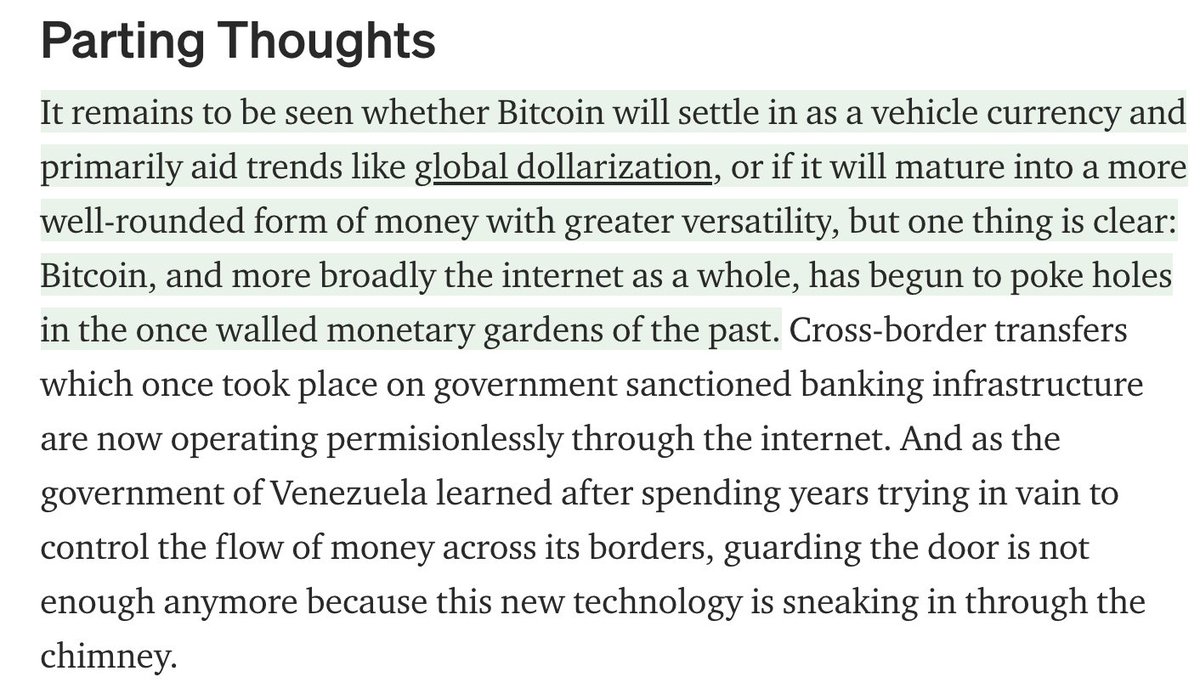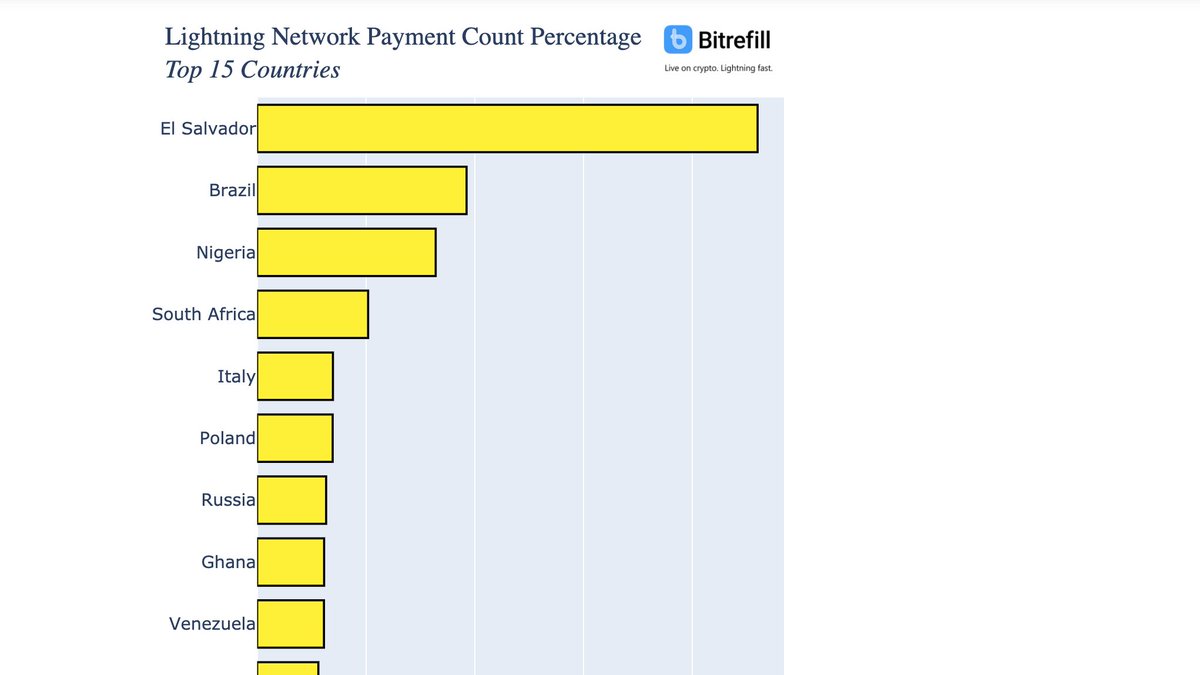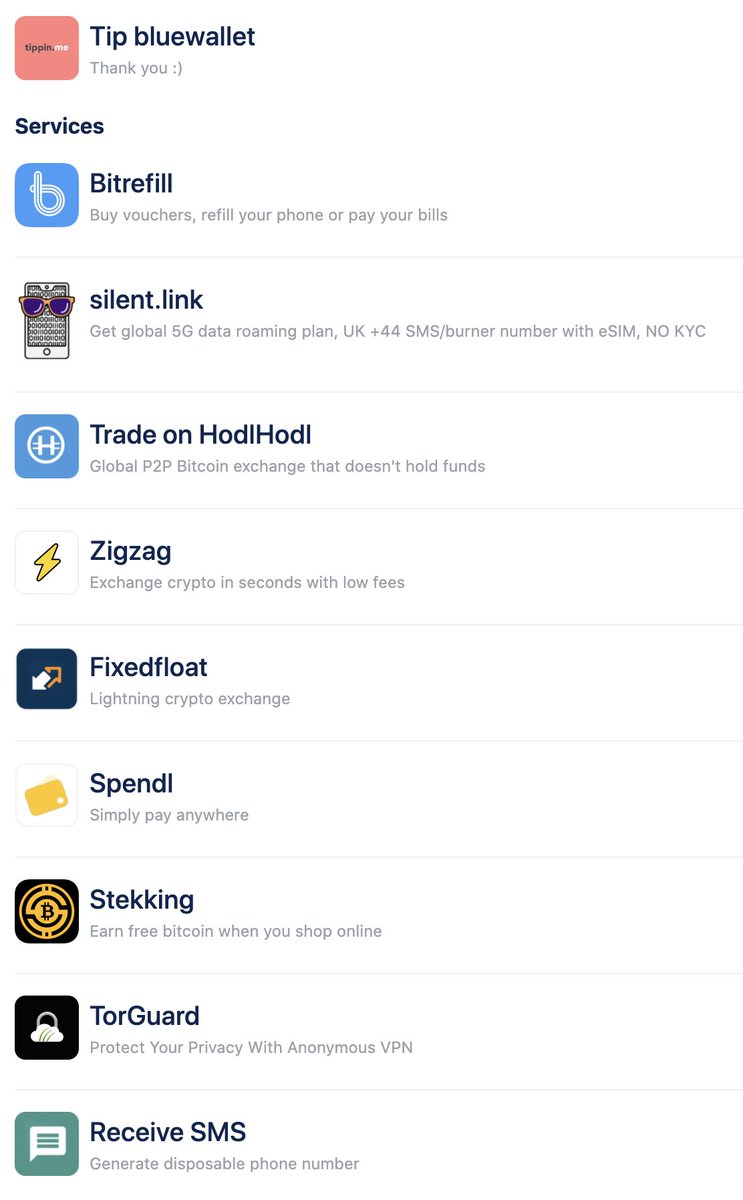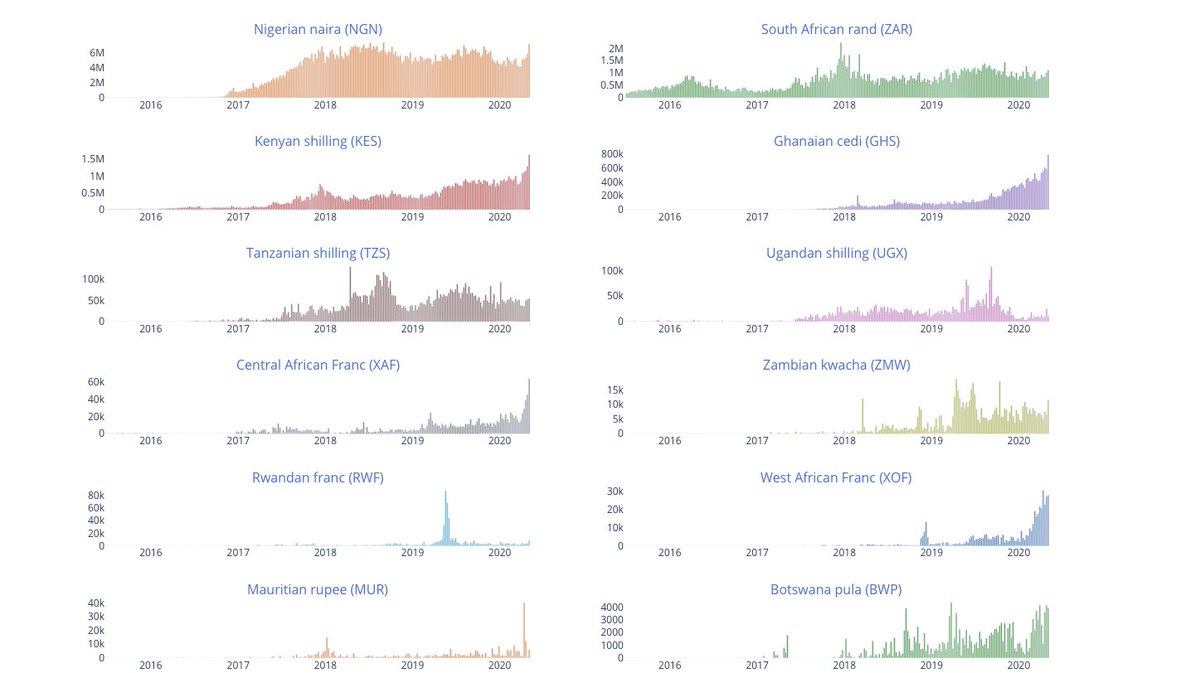
1/ The informal Nigeria Naira has lost 23% of its value against USD since the start of the year, a staggering number for Africa's largest currency. On Friday, the CBN pressured @abokifx, the country's largest publisher of informal exchange rates, to suspend publication.
2/ This move is similar to the Venezuela gov's attempt at blocking its own citizens from accessing @DolarToday, a website tracker of the black market rate of the Venezuelan Bolivar, in 2013.
3/ Like Venezuela's attempt, Nigeria's attempt will fail as informaton is nearly unblockable in the internet age. Dolartoday rates transitioned to Whatsapp groups and crypto exchanges, and AbokiFX wll do the same.
4/ What has happened to Venezuela and what is happening to Nigeria is something that will begin to happen to the MAJORITY (over 100) of emerging market currencies over the next 10 years as technological penetration deepens.
5/ The internet and cryptocurrencies like Bitcoin and USDT are leading to the migration of value from small currency ecosystems to the larger ones like USD, EUR, CNY, and BTC.
6/ I've written about this trend in previous articles on Venezuela and Argentina, but I feel it is happening much more broadly now:
medium.com/open-money-ini…
medium.com/open-money-ini…

If you still wish to see informal Naira rates, you can refer to Yadio.io, a website which uses cryptocurrency exchange rates against local currencies to calculate the informal "free market" rates of currencies all around the world.
• • •
Missing some Tweet in this thread? You can try to
force a refresh













